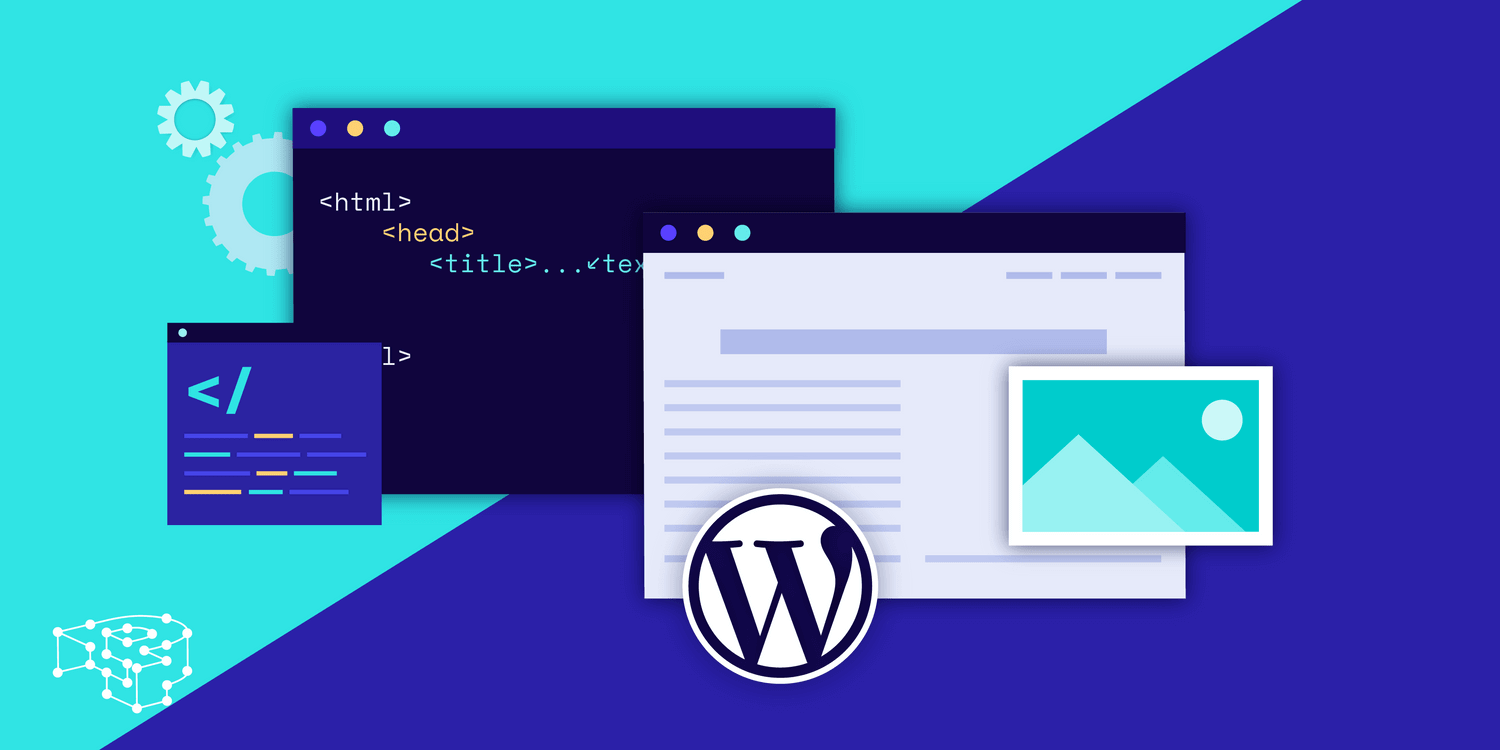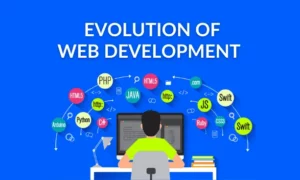Choosing between WordPress and custom website development is a critical decision that impacts your business’s online presence. While WordPress powers over 40% of websites with its user-friendly platform, custom development offers unmatched flexibility for unique business needs. The right choice depends on your specific requirements, budget, and growth plans.
This guide compares both approaches across key factors like cost, performance, security, and scalability. We’ll help you determine which solution makes the most sense for your business, whether you need WordPress’s efficiency or custom development’s tailored capabilities.
What is WordPress?
WordPress is an open-source content management system (CMS) that enables users to build and manage websites without deep technical expertise. Initially launched as a blogging platform, it now powers over 40% of all websites, supporting everything from small business sites to large e-commerce stores.
Its popularity stems from its intuitive interface and expansive ecosystem. Users can choose from thousands of themes for design flexibility and plugins to add features like SEO tools, contact forms, or membership systems. Built on PHP and MySQL, WordPress abstracts complex coding behind a user-friendly dashboard, allowing even non-developers to create and update content effortlessly. The platform’s active developer community ensures regular updates, keeping it secure and aligned with modern web standards. Ensure the platform continues evolving with modern web standards.
What is Custom Website Development?
Custom website development involves building a website from the ground up using programming languages like PHP, Python, JavaScript, or React, tailored precisely to your business needs. Unlike pre-built platforms, this approach grants complete control over design, functionality, and user experience, allowing developers to craft bespoke features that align with your brand and workflows.
The process typically requires a skilled team of developers, designers, and project managers, following stages like planning, wireframing, coding, and rigorous testing. While custom development demands greater time and investment upfront, it delivers unmatched flexibility, scalability, and performance optimization ideal for businesses with unique requirements or ambitious growth goals.
WordPress vs. Custom Development: Key Differences
Cost Comparison
WordPress offers significantly lower initial costs, making it attractive for small businesses and startups. Basic WordPress hosting can cost as little as £5-15 per month, with many quality themes available for under £100. However, premium plugins, custom themes, and ongoing maintenance can increase expenses over time.
Custom development requires substantial upfront investment, typically ranging from £5,000 to £50,000 or more, depending on complexity. Despite higher initial costs, custom solutions often provide better long-term return on investment through improved performance, security, and scalability. Businesses avoid ongoing plugin licensing fees and reduce dependency on third-party solutions.
Flexibility & Customisation
WordPress’s flexibility depends heavily on available themes and plugins. Whilst thousands of options exist, you’re ultimately limited by what others have created. Customising beyond these boundaries often requires significant technical knowledge or hiring developers, potentially negating WordPress’s simplicity advantage.
Custom development offers unlimited customisation possibilities. Every feature, design element, and functionality can be tailored precisely to your requirements. This flexibility proves invaluable for businesses with unique processes or innovative ideas that don’t fit standard templates.
Performance & Speed
WordPress performance varies considerably based on theme choice, plugin usage, and hosting quality. Multiple plugins can create conflicts and slow loading times, particularly on shared hosting environments. However, well-optimised WordPress sites can achieve excellent performance with proper configuration.
Custom-developed websites typically deliver superior performance because developers optimize every element specifically for your use case. Without unnecessary plugin overhead or generic theme bloat, custom sites often load faster and provide smoother user experiences. This performance advantage becomes more pronounced as traffic volumes increase.
Security
WordPress’s popularity makes it a frequent target for cyber attacks. Security vulnerabilities in themes, plugins, or the core system can expose websites to threats. Regular updates and security plugins help mitigate risks, but maintaining security requires ongoing vigilance and technical knowledge.
Custom development provides enhanced security through obscurity and tailored protection measures. Developers can implement specific security protocols relevant to your industry and eliminate common WordPress vulnerabilities. However, security still depends on proper coding practices and regular maintenance.
Scalability
WordPress handles small to medium-sized websites effectively, but performance can degrade as traffic and content volume increase. Database optimisation and caching solutions help, but fundamental limitations may eventually require migration to more robust platforms.
Custom development excels at scalability because developers build architecture specifically for growth. Database design, server architecture, and code structure can accommodate increasing demands from the outset. This approach proves essential for businesses planning significant expansion.
SEO-Friendliness
WordPress offers excellent SEO capabilities through plugins like Yoast SEO and RankMath. These tools provide user-friendly interfaces for optimising content, meta descriptions, and technical SEO elements. Many WordPress themes also include built-in Search Engine optimisation features.
Custom development allows for more sophisticated SEO implementation tailored to your specific needs. Developers can create optimised URL structures, implement advanced schema markup, and ensure perfect page speed scores. However, achieving these results requires SEO expertise during the development process.
Maintenance & Updates
WordPress requires regular maintenance, including core updates, plugin updates, and security monitoring. Whilst updates are generally straightforward, compatibility issues between plugins or themes can create problems. Many businesses hire specialists or agencies to handle ongoing WordPress maintenance.
Custom websites need less frequent updates but require specialised technical knowledge when changes are necessary. Maintenance costs may be higher per hour, but the overall frequency of required updates is typically lower. Long-term maintenance contracts with development agencies often provide the most practical solution.
When to Choose WordPress?
WordPress suits businesses seeking quick deployment with limited technical resources. Small to medium enterprises often find WordPress provides excellent value, particularly when budget constraints limit options. The platform excels for content-heavy websites, blogs, and standard e-commerce stores using WooCommerce.
Consider WordPress if you need to launch quickly, have limited technical staff, or require frequent content updates by non-technical team members. The extensive plugin ecosystem makes WordPress particularly suitable for businesses needing standard functionality like contact forms, booking systems, or basic e-commerce features.
WordPress also works well for businesses testing online concepts before committing to larger investments. The low barrier to entry allows experimentation with different approaches and features before deciding on a long-term strategy.
When to Choose Custom Development?
Custom development becomes essential when your business has unique requirements that existing solutions cannot address. Companies in highly regulated industries like finance or healthcare often need bespoke functionality to ensure compliance with specific standards and security requirements.
Enterprise-level businesses planning significant growth should consider custom development for its superior scalability and performance capabilities. The investment pays dividends when managing high traffic volumes, complex user interactions, or integration with multiple business systems.
Choose custom development when your website is central to your business model and competitive advantage. Unique functionality, innovative user experiences, or proprietary business processes often require custom solutions that WordPress cannot effectively deliver.
Making the Right Choice for Your Business
WordPress emerges as the clear winner for budget-conscious businesses needing quick development and standard functionality. Its extensive ecosystem, user-friendly interface, and low initial costs make it ideal for small to medium businesses, bloggers, and standard e-commerce operations.
Custom development proves superior for businesses with unique requirements, high-security needs, or enterprise-level scalability demands. Despite higher upfront costs, the long-term benefits often justify the investment for companies where their website provides a significant competitive advantage.
Your decision should align with your business goals, technical capabilities, and available resources. Consider WordPress for straightforward requirements and quick deployment, but invest in custom development when your success depends on unique functionality or exceptional performance. Unsure which solution is the perfect fit for your unique needs?
Contact Azentra Technologies for a expert consultation on both WordPress and custom development solutions.



































